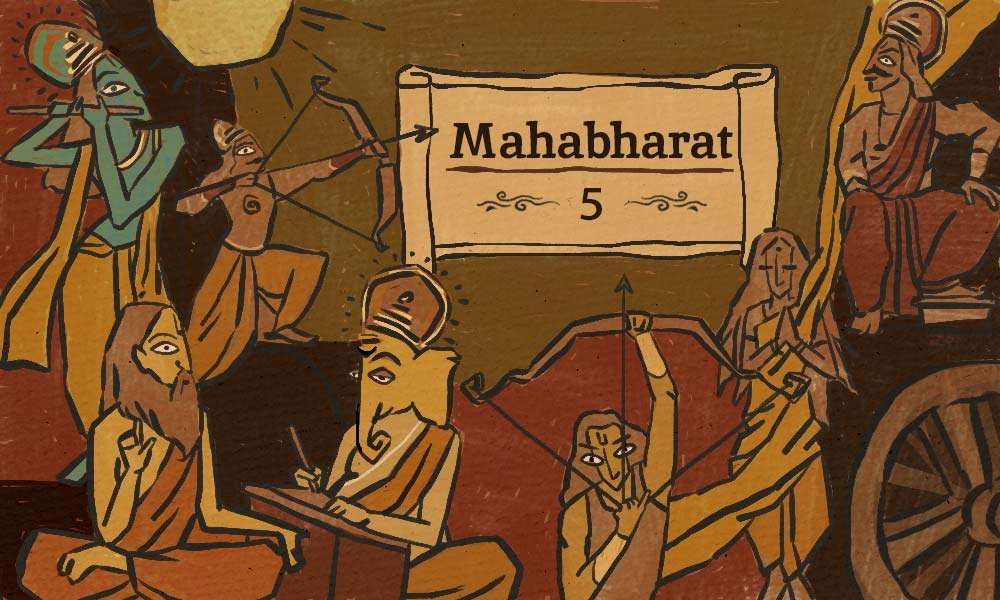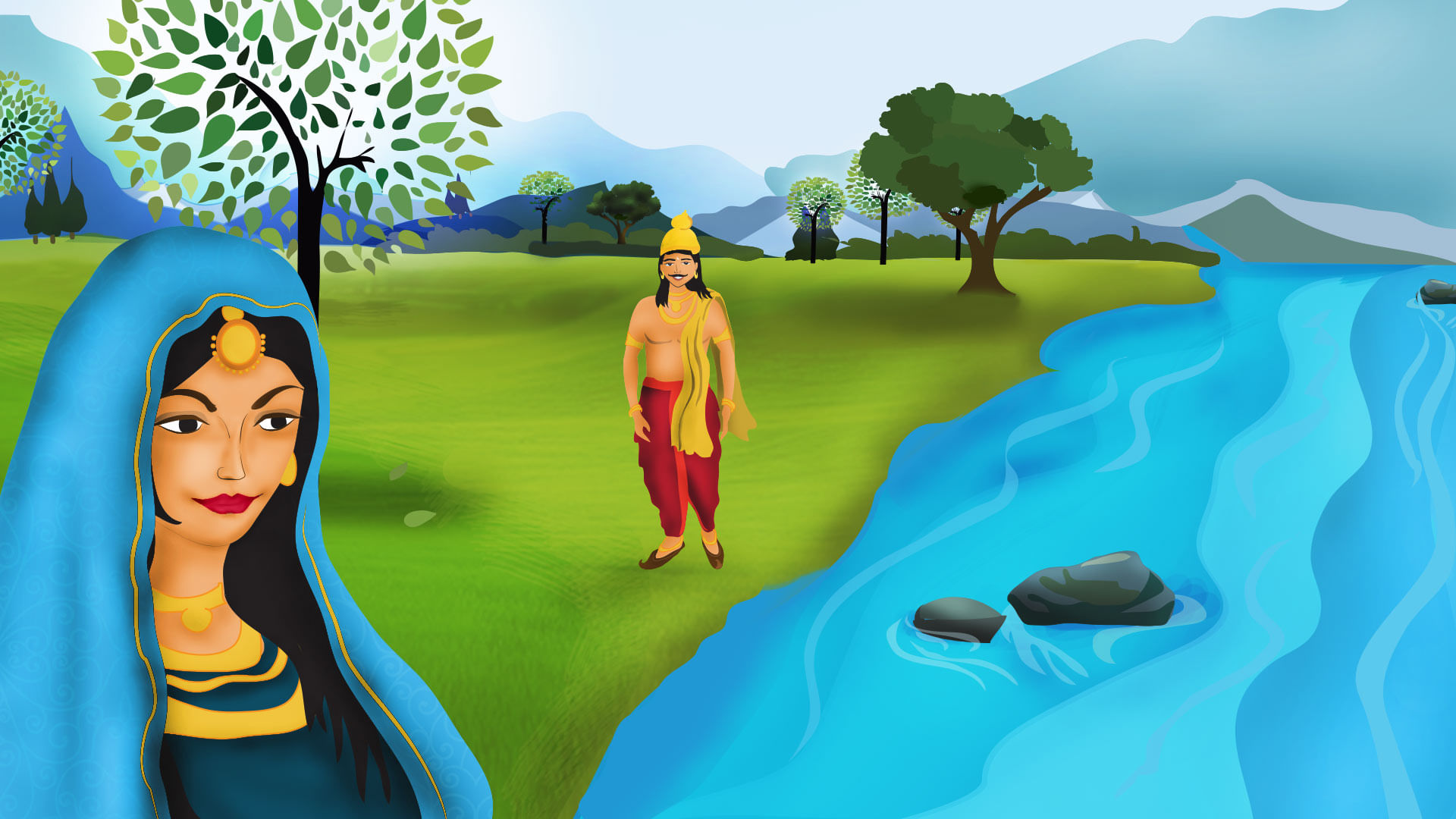Mahabharat Episode 5: Shantanu Meets Ganga
Last week, we saw how Shakuntala met Dushyanta, and gave birth to Bharata. In this story, Sadhguru continues the tale of Mahabharat, and tells us of Bharata’s wisdom, and how his descendant Shantanu meets Ganga.

మహాభారత కథ : శంతనుడు, గంగాల కలయిక
Sadhguru: Bharata had many sons but when they grew up, he said, “They cannot make good kings for my citizens.” This was the first time a king showed a wisdom where just biological connections were not good enough to be a king. Just because you are born to a king, you need not be a king. He manifested this. This was greatly valued. Bharata was celebrated for his balance of mind, impartiality, and his sense of inclusion with his citizenry, and this is one reason why his name was given to the nation.Subscribe
He found a boy named Vithatha, who was born to Mamata, Brihaspati’s brother’s wife. Brihaspati, in a moment of absolute indiscretion, had forced himself upon Mamata and Vithatha had been born. Bharata chose this boy as the king. Vithatha became a great king and ruled for his lifetime with great wisdom and balance. From Vithatha down, fourteen generations later comes Shantanu, and now we are coming down to the story!
Shantanu was the great-grandfather of the Pandavas and Kauravas. Shantanu in his previous life, was known as Mahabhishek. He lived a full life and entered Devaloka. He was sitting in Indra’s court when goddess Ganga came visiting. It so happened that in a moment of unawareness, her dress fell and her upper body was exposed. As was the proper behavior at the time, everyone averted their gaze. Mahabhishek, who was new to Devaloka, kept staring at her. When Indra noticed this impropriety, he said, “You are unfit to be in Devaloka. Go back and be born as a human being again.” Then Indra noticed that Ganga seemed to be enjoying the attention. He said, “This is completely inappropriate. You seem to be enjoying the attention. You also go back and be born as a human being. Go through all the pains and pleasures of being human. When you are free from this pride, you can come back.”
So, Shantanu is to meet Ganga, but he is not aware of it because he does not have his memories of previous lives. But Ganga had retained her memories and was trying to draw him towards her. But being a king he was wandering all over. Shantanu was a fine hunter and when he went hunting, he became so one with that act, for him his hunt was his worship.

Once, for weeks on end, he was out hunting by the Ganga but he was so deeply engrossed in his hunt that he paid no attention to the river. Being a king, whenever he was thirsty or hungry, the people who served him were always around. But one day, thirst overtook him and there was no one around. Then, he thought of the river and came to it. At that moment, Ganga arose from the river as a woman, and when he set eyes upon her, he fell completely in love with her. Shantanu pleaded with her to marry him. Ganga agreed, but she set a condition, “I will marry you, but no matter what I do, you should never ask me why I am doing it.”
There is a history of women setting conditions like this. Puru, the first of the Kurus, fell in love with Urvashi, an apsara and when he asked her to marry him, she said, “There are two conditions. One condition is, “I have some pet goats. You must always see that these goats are protected, no matter what. If you have to use your whole army, you must protect my goats. The second condition is, nobody else should ever see you naked.”
It so happened that the devas wanted Urvashi to return, so they came and stole the goats when Urvashi and Puru were in bed. When she screamed, “My goats, somebody is taking them away!” Puru got up and ran to catch the thieves. Indra saw his chance and sent forth lightening. The whole area was lit up and Puru was seen naked. Urvashi immediately said, “You broke the conditions. I am leaving.” And she left never to come back.
Over a period of time in history, as certain things change, the woman loses this ability to set either reasonable or unreasonable conditions upon the man. You can see it in the story of the Mahabharat itself, how society slowly transformed itself from being matriarchal to patriarchal.
To get back to the story, Shantanu was so madly in love with Ganga that he agreed to anything she asked. So Ganga became his incredibly beautiful and wonderful wife. And then she became pregnant.
To be continued...
Editor’s Note: A version of this article was originally published in Isha Forest Flower June 2015. Download as PDF on a “name your price, no minimum” basis or subscribe to the print version.



